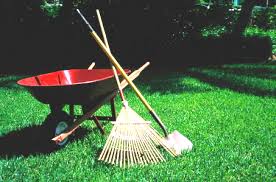Small investments can secure your future
Small investment can deliver you your future. You can have money to send your children to college. You can have the house of your dreams. Your golden years can really be golden. Or… the return on your small investments could make you less dependent on your paycheck. What dreams would you like to make a reality? Making small investments is a smart move and very frugal.
Turning dreams into reality will take some work. You need goals and a plan that’s reasonable to implement; one you’ll stick to. As with almost anything worth achieving, time and persistence are essential factors.
Part of your plan will be to have a lifestyle complimentary to your goals. Anyone interested in successfully making small investments will adopt a lifestyle similar to that of super savers. Super savers are defined as people who habitually direct at least 15% of their income towards savings or investments. (You’ll be more interested in making investments than just putting money away.) Lifestyle changes may include living on a budget and, in general, becoming more frugal. Do whatever it takes to put together a financial support system that make provision for living as well as making small investments. Also, be aware that debt is extremely counterproductive.
Financial support system
You can’t make investments if you have nothing left over after you pay your bills. If you want to have money to invest you need to live below your means. To live below your means you need to spend less than you earn. That sounds pretty simplistic, but living below your means is a lifestyle habit that allows you to build a financial support system that eliminates the need to raid your small investments when “life” happens. Investing must be part of a comprehensive financial plan that deals with daily needs, to include the unexpected—emergencies or opportunities—as they occur, while continuing to increase your ability to do so.
Think of a body builder, someone who maybe started out as the proverbial “90 pound weakling.” Think of him deciding to do something about his physical state. He starts an exercise and weightlifting regime. He bulks up some. As he becomes fit, he increases his ability to become more physically fit. Properly managed, the financial support system you build into your small investment lifestyle can do the same thing for you financially. As you become increasingly fit financially, you enhance the earning power of your money.
Small investment lifestyle
Let’s talk about lifestyle.
How quickly a financial support system can be developed will vary by investor. Circumstances differ. Some people have only themselves to consider, others have families. (Circumstances can also change.) There might be other issues: Do you need to get out of debt? Perhaps you need to reduce your expenses by finding place to live with lower rent (or smaller mortgage). Maybe you need to get out from under car payments? Everything needs to be taken into consideration. Funds need to be freed up for investments. Where are you starting from? To provide long term financial stability, there are some aspects and practices you’ll want incorporate into your lifestyle before you start investing. The next few items below are a good place to start.
have only themselves to consider, others have families. (Circumstances can also change.) There might be other issues: Do you need to get out of debt? Perhaps you need to reduce your expenses by finding place to live with lower rent (or smaller mortgage). Maybe you need to get out from under car payments? Everything needs to be taken into consideration. Funds need to be freed up for investments. Where are you starting from? To provide long term financial stability, there are some aspects and practices you’ll want incorporate into your lifestyle before you start investing. The next few items below are a good place to start.
Keep a spending journal
Where does all your money go? Most people can’t tell you how much they spent or exactly what they spent it on even on a daily basis. A spending journal can help you in several ways. It will help you see what you’re spending your money on, how much you’re spending, and when you’re spending it. This information is invaluable when you’re putting together a budget. It can also help you identify wasteful spending habits that can be modified, allowing your money can do more for you. After you have a budget, a spending journal can help you keep to it as you’ll be able to use the information in it to confirm how much you have left in to spend in any designated category.
Budget
How much money can you save and how much do you waste? People tend to spend all the money they have. To maximize the power of your paycheck, you need a budget. Read my article on budgets. You’ll see I’m a great believer in a categorized (itemized) spending plan. If making small investments is going to be a habit (lifestyle), your budget should include a category for them. An emergency fund, health insurance, life insurance, and retirement are other categories that are pretty much requisite.
Emergency fund
It’s very important to have an emergency fund category in your budget. Life can deliver some unexpected and expensive twists. An emergency fund can help cover those—possibly keep you from going into debt.
Health insurance
You have to pay your monthly bill for health insurance, but what I was really thinking of when I listed it above was
the co-pay and the yearly maximum out pocket factors of your insurance policy. In some cases the maximum out of pocket is quite high. I know some people whose max out of pocket is $15,000 dollars. Of course, there are some years you may not need enough medical treatment to come close to meeting your maximum. However, it’s best to have that amount of money set aside in a sinking fund just in case you do. (I’ll get back to the concept of sinking funds shortly.) Read my article on supplementing your health care expenses. It’s about setting money aside to pay your portion of your health care.
Life insurance
If there are people in your life who count on your income, you need to have life insurance. You’ll want to fund a category in your budget so you can keep up on payments. Consult an insurance agent to learn all of the details.
Sinking funds are important too
Your basic budget will have a number of categories to cover your regular expenses: groceries, various utilities, clothing, etc. As you think about these categories, you’ll realize that making a category labeled; let’s say “automobile” may be a little too vague. After all, there is a lot to an automobile. Sure, you have things like fuel that you probably spend about the same amount on every week. But, what do you do about tires? They might only need to be replaced every couple of years—or, may suddenly go flat, because you ran over a nail. There are quite a few these types of considerations to take into account (and not just about automobiles).
Sinking funds are a way to consistently set aside small amounts of money to prepare financially for upcoming events—some definite, others probable. Read my article about sinking funds.
Note: I’m going to say a bit about retirement funds, shortly. If your financial plan includes making small investments of about equal value every month, you should have a small investment category in your budget; otherwise, you’ll want to include a sinking fund for them.
When money doesn’t go that far
Sometimes we have to admit that our paycheck just won’t cover daily living and at the same time allow us to build funds that protect us, funds we need because life is risky in any number of ways, finances not the least among them. But, we really need a safety net before adding a variable like investing. To stabilize your financial support system, you may need to take on a part-time job or start your own side gig to earn extra money. (There really are a lot of ways to increase your income.)
Financial stability
Your financial support system will be your plan in action to prevent having to raid your investments. It will allow them to mature and to be used for the original intended purpose—most likely, your future. That’s your plan should allow you to have enough funds to handle life’s general ups and downs. You don’t want to cash out your investments early or (even worse) borrow money. A good financial support system gives you the greatest possible chance success.
Retirement
I said earlier that a retirement account was essential. It’s unfortunate for many of us that our income doesn’t
sufficiently allow for one. Small investments are a good way to put your money to work making more.
I know most Americans plan on receiving social security when they reach the magic age when they can retire. According to investopedia.com in 2019 the average retiree only receives $1461 a month. To make matters worse that benefit may be taxed. That doesn’t leave much money to live on.
(Note: If you don’t already have a retirement account you should start one. If you do have a retirement account you need to make regular contributions. If possible make the maximum contribution allowed by law. You’ll need to consult your retirement account representative.)
How big is a small investment
According to NASDAQ: A small investor is an individual person investing in a small quantity of stocks or bonds. The average small investor invests 6 to 10 percent of their gross pay.
Why invest
There are a lot of reasons to invest. At the beginning of this article I mentioned a few: education, good housing, retirement, and financial independence. I’m sure you can think of others.
Investments can lead to financial security. That’s something we’re all interested in. (I doubt that you’ve ever heard anyone say, “I sure hope I go broke today.”)
Some examples
Send your kids to school: Many parents wish to send their children to college and take care of the bill. We all know higher education is expensive. Of course, it’s wonderful when a student receives scholarships and grants, but sometimes those don’t come close to covering the cost. To help considerably there is a small investment you can make—the 529 college savings plan. The plan has two versions, savings plans and prepaid tuition plans. If a 529 plan is established early enough, it can be used to cover education expenses as early as Kindergarten. Also, tax payments for many of these plans can be deferred until you make withdrawals. (Actually, many grandparents start a 529 plan at the birth of their grandchild—sometimes, even before.)
Increase your income/become less dependent on your paycheck: More and more people are realizing they can’t rely on a job to provide all the money they need to support their desired lifestyle (or life in retirement). They can’t count on their boss to give them timely or significant raises and promotions. They know they need to take responsibility for and action toward their financial comfort. They make small investments and give themselves raises as time goes on.
Investing or saving
Have you ever thought about the difference between saving money and investing money?
When you save money, you set aside funds you already have. This money could be designated for something in particular or just be there for when it’s needed. Depending on where you put it, you may make a little interest on it but, usually, that doesn’t amount to much.
When you invest money you purchase assets like stocks, bonds, mutual funds, or real-estate. When you invest, you have the expectation of your investment earning a significant amount of money for you. At some point most investments are cashed out and the money can then be spent, saved, or reinvested.
A real life application
Not long ago, I read an article about a young couple that made regular deposits to a savings account for a year (every year). They also owned a one-year CD (certificate of deposit). When it was time for the CD to expire (same time every year), they transferred the money from their savings account to the CD and renewed it for another year. This contribution to the CD was a small investment, and they made it a practice for several years.
During that period, both people work extra jobs and overtime so they could save as much money as possible to add
to the CD and increase its earnings. (CDs earn interest, but at a greater percentage than a savings account.)
After a few years, between their contributions and the interest earned, the couple was able to cash out the CD and use the proceeds to purchase with cash their first rental property. Now, they take a portion of the rent collected and add it to their budget. With the rest they are repeating their practice of saving and investing in a CD. (It’s larger than their first.) They plan to buy more rental property at an accelerated pace.
One more
One of my friends puts $100 in a savings account every month. Some people are content doing something like that and just letting it sit. My friend isn’t; he has a plan for his money. Over the years he’s used money he saved to buy a collection of corporate bonds. (That’s his small investment.) As each bond matures, he cashes it and adds to it the funds he’s accumulated in the savings account since the last bond matured. With that money, he purchases two more bonds. (He takes one corporate bond and makes two out of it.) When possible he staggers the maturity date of the bonds, so they don’t mature in same month. His goal is to have—eventually—enough bonds that he has a one expiring every month for ten years. (That’s called laddering.)
The purpose behind this investment strategy is to develop another line of income for when he retires. He knows he can’t depend solely on Social Security benefits if he wants a comfortable retirement. In addition to investing in corporate bonds, he has a 401K, and he maximizes his contributions to that. He’s been working these two investment strategies for a long time. He has an impressive portfolio.
Small investments could be the answer to the need to generate funds
Make your money work for you. Adopt a frugal lifestyle that allows you accumulate (save) funds for making small investments. Put together and execute a long-term plan. By the way, sometimes, plans should be tweaked. Life changes or a better understanding of your needs are among reasons to do so. Take a look at my post on planning for more information.
Small investments will not churn out overnight results. With a smart strategy and time they can, however, be instrumental in achieving your dreams.




